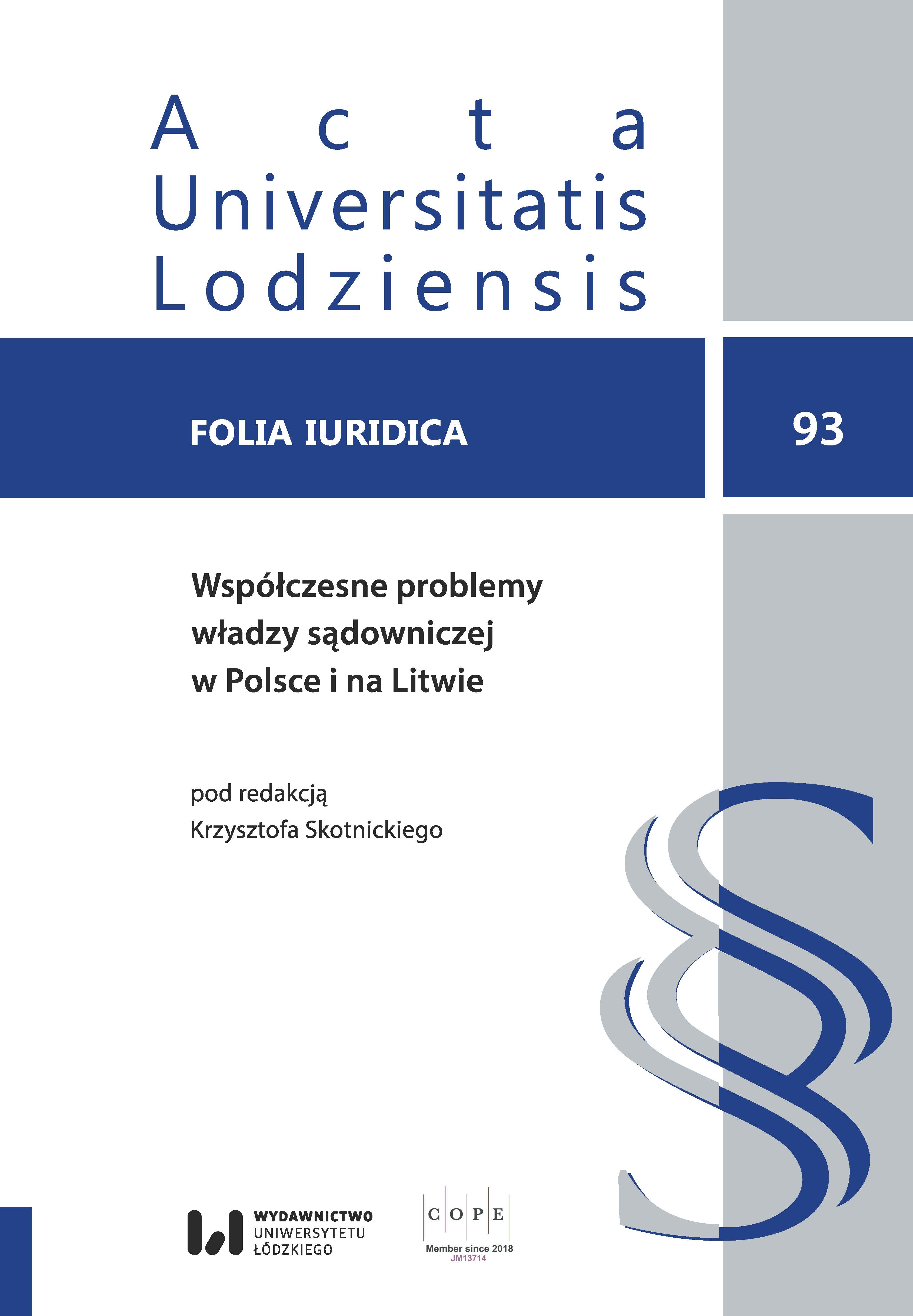Dirbtinis intelektas ir konstitucinė teisė į teisingumą
Artificial intelligence and the constitutional right of access to justice
Author(s): Agnė Juškevičiūtė-VilienėSubject(s): Law, Constitution, Jurisprudence, Constitutional Law
Published by: Wydawnictwo Uniwersytetu Łódzkiego
Keywords: artificial intelligence; constitution; right of access to justice; online dispute resolution
Summary/Abstract: In an ever-changing and modernizing world, new technologies and automatization demonstrate a rapid breakthrough in various areas of society, including law. This article seeks to reveal whether the use of artificial intelligence in law, in particular – the settlement of legal disputes using artificial intelligence, is not in conflict with the constitutional right of access to justice. The purpose of the article is researching the concept of artificial intelligence in accordance with international and Lithuanian legal acts, discussing the ways of applying artificial intelligence in law, focusing mainly on online dispute resolution. Analysing the positions of legal scholars and foreign practices in the application of electronic justice, the article highlights the advantages and disadvantages of online dispute resolution. The mentioned advantages and disadvantages are assessed in accordance with the bases of the right of access to justice formed in the constitutional law of the Republic of Lithuania.
Journal: Acta Universitatis Lodziensis. Folia Iuridica
- Issue Year: 2020
- Issue No: 93
- Page Range: 117-136
- Page Count: 20
- Language: Lithuanian

